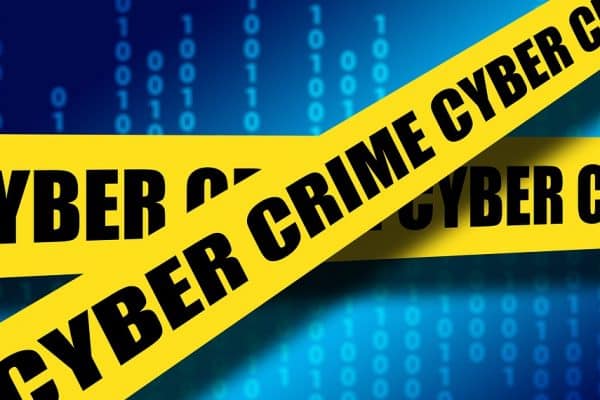Protect Yourself From Cybercriminals
The more people live their lives online, the more chances there are that they will be victims of cybercrime. Criminals continuously find new ways to harness online tools and technologies to commit crimes. The types of cybercrime that might affect a private individual include bullying, financial fraud, email spoofing, hacking, identity theft, information forgery, intellectual property theft, and stalking. Victims can suffer effects ranging from annoyance to financial ruin. That’s why it’s important to know what to do to prevent and react to a cybercrime.
File a Complaint or Report Cybercrime
It can be hard to know who to contact when cybercrime is discovered. After all, cybercrime is usually committed remotely or even internationally, so it’s hard to know who’s in charge of investigating and stopping it. First of all, if you suspect financial implications, notify your financial institutions. Next, contact your local law enforcement agency. They are obligated to take a report (which will probably be needed by your financial institutions) and make referrals to other agencies. Beyond your local law enforcement agency, you may also need to contact other sources.
- Internet Crime Complaint Center (IC3): File a complaint online here to report a cybercrime to the FBI.
- Federal Trade Commission Complaint Assistant: You can also report a variety of offenses, including online scams, to the FTC.
- Cyber TipLine: If a child is being exploited online, report it to the National Center for Missing & Exploited Children.
- Secret Service Cyber-Investigations: The Secret Service investigates misuse of currency, including online fraud.
- File a Complaint With the Postal Service Inspector General: The U.S. Postal Service also takes reports of criminal activities, including mail fraud and computer crimes.
Cases of Cyberbullying
Make sure children, adolescents, and other family members know to get help if they experience bullying online. If they do experience cyberbullying, make sure to save any forum posts, tweets, emails, social media posts, direct messages, or texts from the perpetrator. Keep a record of the bullying and any interaction with the bully. Report the bullying to the administrators of any website where the bullying occurs. Block the person on all social networks, email accounts, and phone numbers. Attempt to avoid the person. Responding to a bully often results in an escalation of the issue. If the situation does escalate, contact local law enforcement.
- Cyberbullying Causes and Effects: The Megan Meier Foundation reports that 34% of students experience cyberbullying.
- Warning Signs of Bullying: Learn what to look for in a child who might be a victim of bullying.
- How to Prevent Bullying: Read these tips for parents and educators to learn how to help kids understand and stop bullying.
- Cyberbullying: The National Bullying Prevention Center provides information for parents about the issue of cyberbullying.
Collect and Keep Evidence
No matter which agency investigates a cybercrime, they will need evidence. Evidence might include screenshots of websites or messages and copies of messages/texts/emails. Additionally, computers, phones, and tablets might need to be examined by forensic investigators to see if any malware was put on the victim’s devices. Other evidence to keep may include canceled checks, credit card statements, money order receipts, phone bills, and call logs.
- Digital Evidence: This page targeted toward police investigators can give you an idea of the types of information that can be useful to collect in cybercriminal investigations.
- Digital Evidence and Forensics: Learn more about the types of evidence collected in cybercrime cases from the National Institute of Justice.
- The Emerging Cyberthreat: Cybercrime Investigations and Digital Evidence: An article in Police Chief Magazine looks at digital evidence and its role in investigations.
- Computer Forensics: Preserving Evidence of Cybercrime: The Wall Street Journal discusses the importance of network administrators and IT professionals in preserving evidence when a cybercrime is suspected.
- Computer Crime Investigation Using Forensic Tools and Technology: Take a look at the processes and tools available to find and preserve digital evidence related to cybercrime.
Cases of Identity Theft
Identity theft is a particularly frightening type of cybercrime. If there is any suspicion of identity theft, immediately change your passwords for online accounts including your email and banking accounts. Check all accounts for suspicious activity, and contact the relevant credit card company or bank to report anything you find. Next, file a complaint with your local law enforcement agency. Banks, credit card companies, and other entities will need a copy of this report.
- Equifax Fraud Alert Reporting: If you suspect that you’ve been a victim of identity theft, you’ll need to report it to the major credit bureaus, including Equifax.
- TransUnion Fraud Alert: Identity theft victims should also report this to TransUnion.
- Experian Identity Theft Help: Here are the steps you should complete with Experian if you’ve been a victim of fraud.
- Identity Theft and Your Social Security Number: Read this to learn about protecting your Social Security Number and reporting identity theft.
- Tax-Related Identity Theft: If you are a victim of identity theft, you may encounter problems with the IRS that need to be straightened out.
- gov: This federal website can help you if your identity was stolen, your data was exposed, or someone has tried to commit tax fraud with your personal information.
- What Do I Do if I Think I Have Been a Victim of Identity Theft? The Consumer Financial Protection Bureau provides information about fraud alerts on this page.
Protect Yourself Online
Cybercrimes are often in the news, especially when a large company is targeted and the private information of their customers falls into criminal hands. So does this mean everyone will be a victim? It’s true that someone could do everything right to stay safe and yet still end up a victim of an online crime. However, there are steps everyone can take to minimize the chances of becoming a victim. Many of these tips should be common sense. Be careful about the Wi-Fi networks you use, don’t click on suspicious emails, and keep all devices updated with the latest bug fixes and patches.
- Protect Yourself From Cybercrime: Follow the advice in this guide provided by the Department of Homeland Security to help keep criminals from accessing your information.
- Seven Tips for Keeping Swindlers Off of Your Computer: Learn about things you can do to avoid malware from this CNBC report.
- Protecting Yourself From Online Crime: This Forbes article offers tips on keeping your computer and Internet connection safe from intruders.
- How to Protect Yourself From Cyberbullies: Pass along this advice for teenagers to help them avoid becoming a target of online bullying.
- Ten Tips to Protect Your Child From Cyberbullying: Parents should read these tips to help their children stay safe from online harassment.
Find more useful information on:
- Criminal defense law
- DUI defense
- Domestic violence defense
- Drug crime lawyer representation
- Gun crime defense
- Theft crime defense
- Sex crime defense







